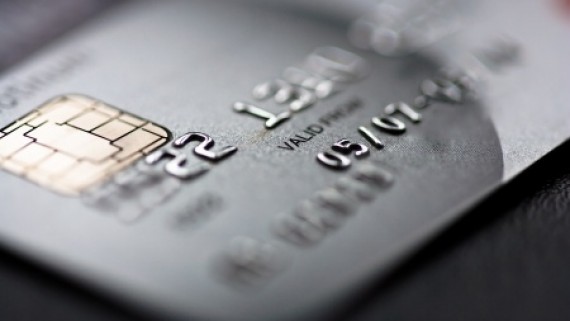Does Bankruptcy Put an End to Your Financial Problems?
If you ask most people who file bankruptcy, they will tell you that it was the most difficult decision that they probably have ever made but that it was also the best decision too. No one works toward a goal of filing bankruptcy; however, many need the relief from overwhelming debt that is provided under the Bankruptcy Code. There are situations that arise that we are not prepared for that cause us to take on debt in order to make ends meet. That could be the loss of a job, a prolonged medical illness, an unexpected accident or the loss of a partner. Whatever the reason, we do what we must in order to pay the bills and put food on the table for our family. Unfortunately, for some, there comes a time when they are unable to continue paying their bills in addition to paying for their basic living needs. In those cases, bankruptcy is a viable option to solve their debt problem.
Some people assume that individuals who file for bankruptcy relief are deadbeats who do not want to pay their bills. However, in almost every case, there is a reason why the person filing bankruptcy is unable to pay their bills. Most of the time, that reason has nothing to do with being lazy, overspending or a desire to get out of paying their bills. In fact, most individuals have tried everything within their power to pay their bills including using retirement funds, getting a second job, borrowing from friends and family and selling assets. It only takes on unexpected life-changing event to create a financial crisis that you cannot recover from without the help of the bankruptcy court.
How can filing bankruptcy end my financial problems?
By filing a bankruptcy case, you put an end to creditor harassment and aggressive bill collectors. This is the first step in relieving the stress and anxiety that are associated with a financial crisis. Creditors are prohibited by the bankruptcy automatic stay from initiating or continuing any collection efforts including but not limited to filing or continuing a lawsuit, contacting you by telephone or sending collection notices by mail. Once you have removed some of the stress, you can begin to focus on how to recover financially and rebuild your finances for your future plans. To make this a reality, the bankruptcy case will discharge most, if not all, of your debts allowing you to have a fresh start. How does this happen?
Chapter 7 Bankruptcy – In a Chapter 7 bankruptcy case, you are stating to the court that you do not have any disposable income, after the payment of your allowable living expenses, with which to pay your debts. Therefore, if you meet the eligibility requirements to be a Chapter 7 debtor and you fulfill all of the requirements under Chapter 7, you can receive a total discharge of most, if not all, of your debts. Taxes, alimony, child support and student loans are typically non-dischargeable so you will continue to owe those after your bankruptcy case has ended. The Chapter 7 bankruptcy discharge will also discharge the legal liability for your secured debts (i.e. mortgage loan, car loans, etc.); however, it will not void the lien that secures these debts. Therefore, if you want to retain the collateral, you must continue paying the payments under the original contract.
By filing a Chapter 7 case, you can solve your financial problems and have a clean state to begin again. As part of your bankruptcy filing, you will be required to complete a credit counseling course prior to filing bankruptcy and a financial management court prior to receiving a discharge. These courses are designed to help debtors learn how to manage money, use credit responsibly, prepare budgets and provide other financial tools so that debtors can move forward with the knowledge of how to avoid and solve financial problems in the future. The goal is to end financial problems for the debtor by combining the bankruptcy discharge with education to help him in the future.
Chapter 13 Bankruptcy – Some individuals can afford to pay their bills; however, they need the help of the bankruptcy court to reorganize their debts into a more management payment plan. The Chapter 13 filing has all of the same benefits of a Chapter 7 bankruptcy but requires that the debtor complete a Chapter 13 plan in order to receive a discharge. Debtors who do not qualify for a Chapter 7 bankruptcy because their income is above the state median income level can turn to a Chapter 13 case to end their financial problems. The Chapter 13 plan allows the debtor to pay some or all of his debts over a 3 to 5-year period. The plan makes it affordable for the debtor to pay his debts by allowing him to pay unsecured debts pennies on the dollar with no interest, stretch out some secured payments over 60 months (i.e. car loans) at a lower interest rate and catch up past due mortgage payments to save his home. At the end of the plan, provided the debtor has made all of the payments required by the plan, the remaining unsecured debts (with a few exceptions) will be discharged. The debtor can then continue rebuilding his finances for a stronger future.
What should I do to end my financial problems?
You should call The Law Office of Gene F. Turnwald to schedule a free bankruptcy consultation. Bankruptcy ends financial problems and gives you a fresh start to recover from a financial crisis and rebuild your life again. You do not have to suffer with debt problems or deal with angry debt collectors on your own. Attorney Gene F. Turnwald is an experienced Michigan bankruptcy attorney who understands what you are going through and wants to help you find an affordable solution for your financial problems. Call our office today to schedule your appointment and put an end to the stress caused by overwhelming debt.









